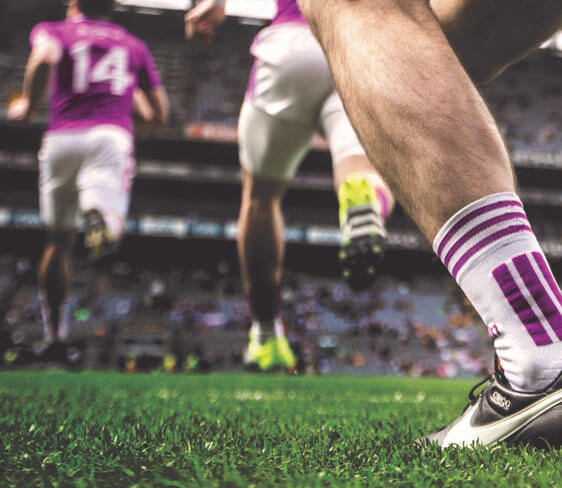Concussion Symptoms and Diagnosis
The UPMC Concussion Network provides a proven, evidence-based approach to concussion, diagnosis, management, and rehabilitation. We create a personalised plan based on active treatment and continual re-examination for every patient.
What is Concussion?
A concussion is a traumatic brain injury caused by a direct or indirect hit to your head or body. It can vary greatly in severity.
Your brain sits inside your skull surrounded by fluid. When your head takes a hit — as often happens in contact sports — your brain shifts or shakes around inside the skull.
The impact disrupts your brain, causing chemical changes and other effects in the brain.
Concussions need proper diagnosis and an effective treatment plan. And it's not just athletes. Anyone who recently suffered a direct or indirect hit to their head or body is at risk.
Symptoms of Concussion
Concussion symptoms can vary drastically from person to person and the effects aren't always obvious.
Some can show up right after the injury whilst others may present days or weeks after the initial incident (post-concussion syndrome).
Immediate Concussion Symptoms
Look for these signs right away to indicate a concussion occurred:
- Disorientation or confusion. Any change in mental status means immediate attention is vital.
- Vomiting. Vomiting right after a blow to the head or body can be a sign of a concussion.
- Amnesia. Some people may forget moments leading up to the injury, or even forget days or weeks before or after the injury.
- Loss of consciousness. Not everyone loses consciousness from a concussion but it can occur. Any loss of consciousness is serious.
Effects and Signs of Concussion
Concussion causes changes in how the brain functions. This can increase your chance of getting another concussion before seeking or completing treatment. Repeated concussions can cause lasting cognitive issues.
Look for these signs that may develop slowly over time:
- Headache or migraine
- Dizziness
- Nausea
- Fatigue
- Cognitive trouble
- Changes in mood
- Sleeping difficulty
- Neck pain
- Double vision
- Weakness or tingling in arms or legs
- Seizure or convulsion
- Loss of consciousness
- Vomiting
- Restlessness
- Agitated or combative behavior
Further or ongoing complications can develop if you don't receive treatment.
UPMC's Personalised Treatment Approach
Doctors in the UPMC Concussion Network understand that no two concussion injuries are alike.
UPMC's advanced, evidence-based, approach combines advanced assessment tools and globally renowned expertise to treat each patient with the highest standard of care.
Our evidenced-based approach to diagnosis and management of concussion is to ensure that concussions, when properly managed, are treatable injuries. We treat concussions not only for school-age children and athletes but for people of all walks of life.
Complete concussion care offered by UPMC Concussion Network Specialists includes:
- A complete clinical history examination to understand the injury and medical history.
- VOMS (vestibular/ocular motor screening). Assesses balance, movement, and vision.
- Neurocognitive ImPACT® testing. Checks brain function after the injury.
- Neurovestibular exam. Evaluates processing speed, memory, and reaction time.
- Personalised care plan. Tailored rehabilitation plans with our trained physiotherapy teams.
This targeted assessment and active treatment approach offers patients a scientific, evidence-based plan for recovery. It also provides safe pathways for return to learn, work, and play.

